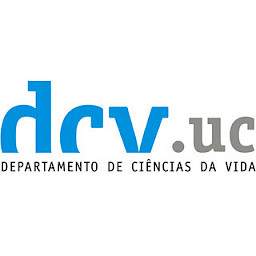Presentation
The master in forensic anthropology was created following the demand of the students. After eight editions of the postgraduation, the masters gives the opportunity to do a research in forensic anthropology for those who want to go further in the field. This master is also characterized for its interdisciplinary nature and for the cooperation with the reality of Legal Medicine and Forensic Anthropology. It is the very first course in this area of expertise in Portugal and one of the few in Europe.
Study Programme
1st YEAR - 1st Semester
| COURSE UNIT TITLE | TYPE | SUBJECT AREA | ECTS |
| Dental Analysis | Compulsory | Forensic Anthropology | 6 |
| History and Evolution of Forensic Anthropology | Compulsory | Forensic Anthropology | 4 |
| Criminal Investigation | Compulsory | Forensic Sciences | 2 |
| Human Osteology | Compulsory | Forensic Anthropology | 6 |
| Biological Profile | Compulsory | Forensic Anthropology | 6 |
| Forensic Taphonomy | Compulsory | Forensic Anthropology | 6 |
1st YEAR - 2nd Semester
| COURSE UNIT TITLE | TYPE | SUBJECT AREA | ECTS |
| Identification in Forensic Anthropology | Compulsory | Forensic Anthropology | 8 |
| Field Anthropology | Compulsory | Forensic Anthropology | 4 |
| Introduction to Legal Medicine | Compulsory | Forensic Sciences | 6 |
| Trauma: cause and manner of death | Compulsory | Forensic Anthropology | 6 |
| Free optional unit* | Optional | | 6 |
|
*The student should register in optional curricular unit in a total of 6 ECTS. Choice is subject to the approval of the course coordinator. |
2nd YEAR
| COURSE UNIT TITLE | REGIME | TYPE | SUBJECT AREA | ECTS |
| Research Project in Forensic Anthropology | 1st semester | Compulsory | Forensic Anthro. | 3 |
| Dissertation in Forensic Anthropology | Annual | Compulsory | Forensic Anthro. | 57 |
| The student must make 60 credits annually. |
General information
- Nome do curso: Mestrado em Antropologia Forense
- Tipo: 2º Ciclo
- Classificação atribuída: Mestre
- Coordenação do curso: Profª Doutora Teresa Ferreira (mferreira@uc.pt)
- Coordenador da mobilidade: Prof. Doutor Gonçalo Duro dos Santos (gsantos@uc.pt)
- Objectivos: Pretende-se que os estudantes adquiram:
1. Competências instrumentais, e.g., competências em: análise e síntese; organização e planificação; comunicação oral e escrita; utilização de ferramentas informáticas no âmbito do estudo; gestão da informação, capacidade de decisão e ainda resolução de problemas.
2. Competências pessoais e interpessoais, e.g., competências em: trabalho de grupo e em equipas interdisciplinares; trabalho num contexto internacional; raciocínio crítico e entendimento da linguagem de especialistas.
3. Competências sistémicas, e.g., competências em: aprendizagem autónoma; investigação; adaptabilidade a novas situações; aplicação prática dos conhecimentos teóricos; planeamento e gestão; autocrítica e auto-avaliação. Pretende-se ainda estimular a criatividade, liderança, espírito de iniciativa e empreendedorismo, preocupação com o rigor e a qualidade. - Duração: 4 semestres
- ECTS: 120
- Saídas Profissionais: Técnicos de Antropologia Forense; Peritos; integração em equipas internacionais de desastres em massa e crimes contra a humanidade; ensino; consultadoria; escavação de restos humanos.
- Numerus clausus: 25
- Destinatários e condições de ingresso: Especificamente, podem candidatar-se os titulares do grau de licenciado ou equivalente legal em Antropologia, Biologia, Bioquímica, Medicina, Medicina dentária, outras Ciências Biológicas e Ciências Sociais e Humanas.
- Mais informação: Website da UC
Dissertations presented
You can consult the dissertations that were presented at the Department of Life Sciences within the scope of this master's degree.

